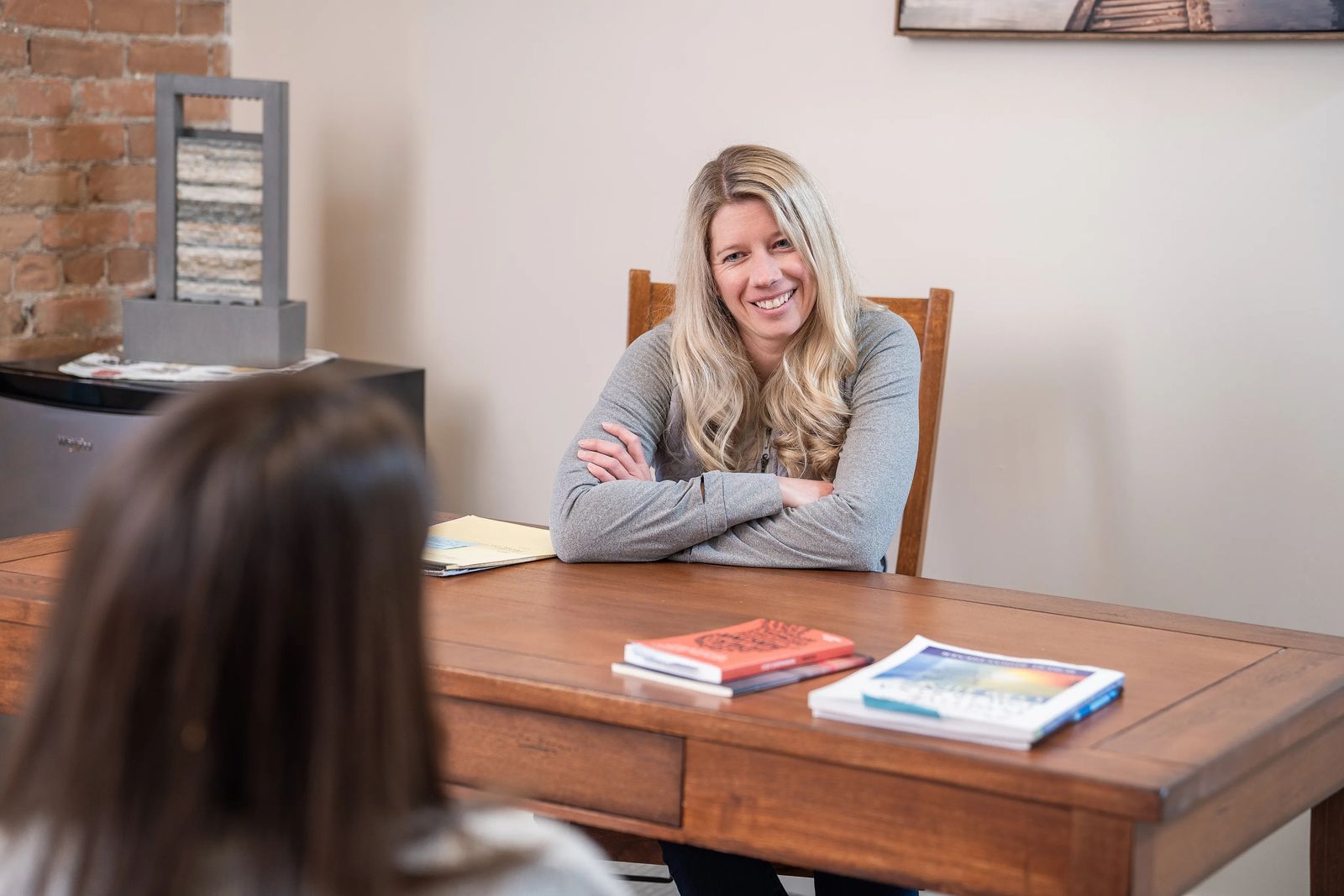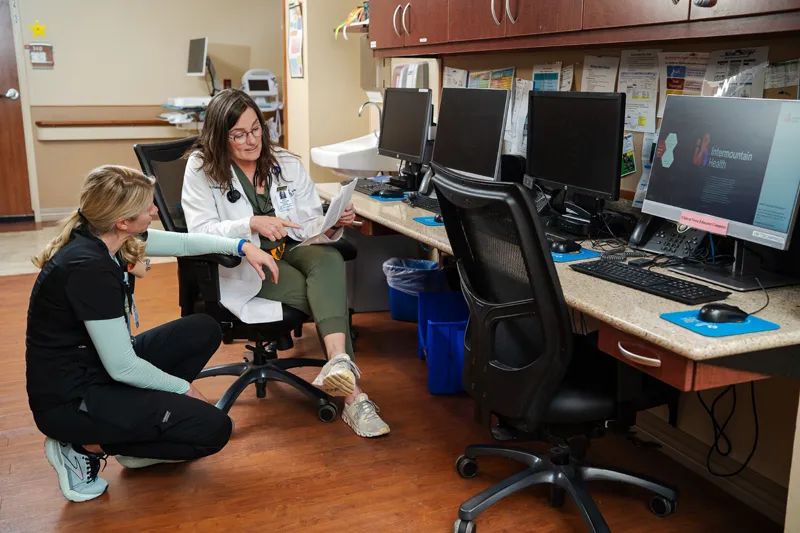
Throwing a Lifeline
Billings nurse tackles the taboo subject of mental health in healthcare
Brooke Forsythe knows the statistics. Six out of 10 nurses experience burnout on the job. This goes beyond the average toll of stress or fatigue. It’s emotional, mental and physical exhaustion. She also knows what’s at the heart of it all.
“For me, as a nurse for 20 years, I know we just put a shield over ourselves,” Brooke says. Besides being an R.N., Brooke is a mentor for new nurses and a charge nurse in St. Vincent Regional Hospital’s Oncology Department.
“We’ve been taught not to show our emotions,” she says. As a result, she adds, “I think we show up at the hospital as our best selves and when we get home, we show our worst selves to our family. We put on the stoic face, but we are mentally exhausted.”
When you pair that with 12-hour shifts, constantly changing schedules and the fact that the profession is staring down a shortage of roughly a half million nurses nationwide by 2026, “It’s a mental struggle,” Brooke says.
It’s why she’s not only pointing her career down a new path, but she’s written a book to be a source of light for others. The book, “Dispensing Pills, Popping Pills: My Life as a Nurse & Psychiatric Patient,” was released last May. It’s a raw look at Brooke’s personal life dealing with anxiety, depression and the weight of the job. Brooke knows every healthcare professional who has ever felt their career weighing down their mental health will relate to the stories she shares.

The cracks in Brooke’s psyche began at the age of 27. Her parents were going through of a divorce, one she says she didn’t quickly recover from.
“At the time, I just felt defeated,” she says. She was used to having that family unit to lean on when her job got tough. Seeing it in shambles, she says, “It ruined me.”
Like many of her fellow nurses, she kept a lot of those emotions tucked away.
“Things just erupted,” she says, and after that came the suicidal thoughts. “The first thing? I got a prescription. Honestly, I think I just needed someone to talk to at that point.” She went years trying different prescription cocktails to help boost her mood.
“I think they helped for a little bit, until they didn’t,” Brooke says. “I didn't see anybody for counseling for eight years. Instead, I came on and off 18 different medications. That’s where I think healthcare is failing. We are prescribing pills to people when all some need to do is talk about what they are going through.”

As a way to deal with her thoughts, she started a blog. She never really expected anyone to read it. But, after about two years, a colleague told her how helpful it was and urged her to write a book.
“She told me, ‘I think this needs to get out there to help healthcare workers in general.’” Brooke says she took the woman’s advice. “It was very hard to write because I put myself out there, but I know that’s what you have to do for people to relate and get the confidence to talk about it.”
She dedicated the book to all the nurses and caregivers who put their whole heart into their work. While the book outlines the heartache endured on the job, Brooke also delivers a strong message about the power of positivity.
“I woke up one morning and realized that this is not what life's supposed to be,” she says of the stress she often brought home with her. “Life is supposed to be about happiness and positivity. I was limiting myself with my negative emotions. Once I turned those around and did some positive self-talk, the world changed. I was transformed.”

During the course of her career, she’s seen how dramatically nursing has changed. Patient ratios are going up she says, and so many of her patients are in critically poor health.
“Nurses these days are dealing with such catastrophic cases,” she says, and if you dwell on that, it can wreck you. “You need to go in with your whole heart, judgement aside, and just treat each person with kindness and positivity.”
For the past few years, Brooke has focused on teaching the new nurses she mentors how to live in the present moment with every patient. She urges nurses to slow down, listen to their patients and learn how to deal with the loss tied to cancer care.
It wasn’t too long ago that Brooke’s floor witnessed three deaths in just one shift.
“People were emotional. You could just feel the energy being sucked from us,” she says, adding that she’s learned how to turn this energy around. “You tell them it is okay to grieve. You help each other out. Ask a fellow nurse, are you OK?” Brooke says.

Today, Brooke works part time at the hospital. The rest of her week is spent as a nursing coach.
“It’s a new revelation in healthcare,” she says. “It’s body, mind and spirit.”
A nurse coach is a registered nurse with additional training to help clients from a holistic point of view. Brooke works one-on-one helping others make lasting lifestyle changes that will ultimately impact a person’s health. “We listen to them, talk about the present and what their future goals for their health look like. We lift them up.”
While she loves coaching wellness, she isn’t ready to stop working in traditional healthcare yet. She knows she can help her fellow nurses embrace change there too.
Recently, a younger nurse approached her after getting a hold of her book.
“She told me, ‘To know you feel this way makes me feel so much better about myself. You are one of the strongest nurses. Now, I know I can just talk to you.’”
It was one of the best compliments she’s received.
“Vulnerability should be shown as a strength,” Brooke says. “We should be talking about what happens during our day. Our stories need to be known.”
YOU CAN FIND Brooke Forsythe’s book, “Dispensing Pills, Popping Pills: My Life as a Nurse & Psychiatric Patient,” on amazon.com To learn more about her wellness coaching, you can visit forsythewellnesscoaching.com











